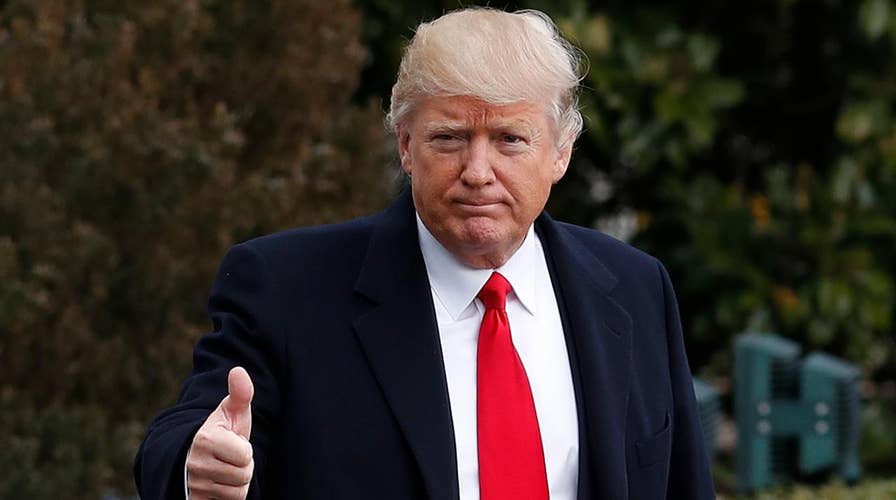Where the Trump administration stands on health care
The president admits to ObamaCare replacement delay; James Rosen has the latest for 'Special Report'
President Trump and the Republican Congressional leadership are following the lead of their rank and file. They are making their first priority the repeal and replacement of ObamaCare. That is a mistake. Health care reform is complicated. Arriving at a replacement plan will not happen quickly or easily.
Meanwhile, the Trump administration is beginning at a time when fourth quarter 2016 GDP growth, despite predictions of a robust outcome, came in at a tepid 1.9 percent. If the economy over the next nine months weakens significantly, be assured replacing Obamacare with a new plan supported by 60 senators, including eight Democrats, will be even more difficult.
Under the current proposed legislative agenda, Congress will not be able to take up the issue of tax reform until members of Congress get a firm picture of a replacement health care plan. That plan, which cannot be passed under the 51-vote majority reconciliation vehicle, but instead will require 60 votes, could take longer than expected to develop. During the next several months, the Senate will also be tied up in debate over the President’s Supreme Court nominee. Usually that process takes several months of debate and backroom maneuvering before a candidate is confirmed. The Senate becomes bogged down.
The point here is that financial markets are assuming that Congress will easily enact a tax reform package, including the immediate expensing for tax purposes of all capital investment and some form of border adjustment tax, by late summer at the latest.
The prospect for tax reform is one reason the U.S. stock market has surged since the election. The more that ObamaCare replacement and the Supreme Court debate drag on through the rest of this year, the greater the chance that markets conclude that despite the Republican majorities and a Republican White House, legislative stalemate will continue well into 2018 if not longer.
For the GOP, the smarter strategy would be to immediately push tax reform under the first budget reconciliation vehicle. No, tax reform won’t be easy either. But the Democrats have far more emotional attachment to ObamaCare and the chances of outright partisan warfare over tax reform are relatively small.
True, there will be opposition to the border adjustment tax, particularly from retailers. And those who suggest that the tax reform package not include individual tax reform are misreading the situation. Today 80 percent of businesses are so-called “pass-through” entities that are exempt from the corporate tax system. Any tax reform would have to include these smaller “corporate” entities -- i.e. it would have to include reform of the individual tax code in addition to the corporate tax code.
Capitol Hill moves at a snail’s pace. In the successful 1986 tax reform effort, legislators spent several years prior to enactment ironing out difficulties over thorny issues. Today’s tax reform will entail the same process of negotiations, albeit compressed timewise. The chances, nevertheless, that Congressional Republicans, with some Senate Democratic help, come together with 51 votes by the August 2017 Congressional recess and enact a package are hardly certain. But they are a lot better than the chances that Obamacare is passed through the Senate easily with 60 votes by that time.
The stakes for financial markets are high. If there is a chance tax reform and expensing are not be enacted until some unspecified time in the future, how does a company make a decision on new capital investment? Hold off investing this year in anticipation of much more favorable tax treatment in the future? But such delay could come at a cost to the economy and equity market. Under a border adjustment tax, exports would not be taxed. Should a corporation hold up on its exports until some unspecified future date to achieve tax savings? But such a delay would increase the trade deficit and harm the economy.
For Trump and the Republicans, the money play is to build a more robust economy quickly. With the credibility of such an achievement, ObamaCare, by then hanging by a thread, will become the responsibility of both parties in Congress. The program, even before enactment of a replacement, will likely have died its own death.
For the first time in decades, both parties in this crisis environment will have to come together in agreement on something they hate -- a bipartisan solution.









































